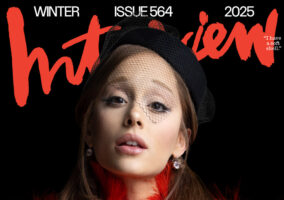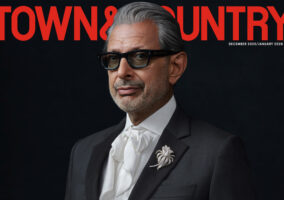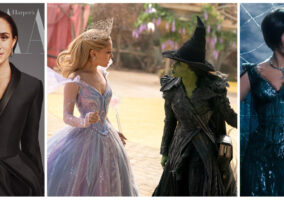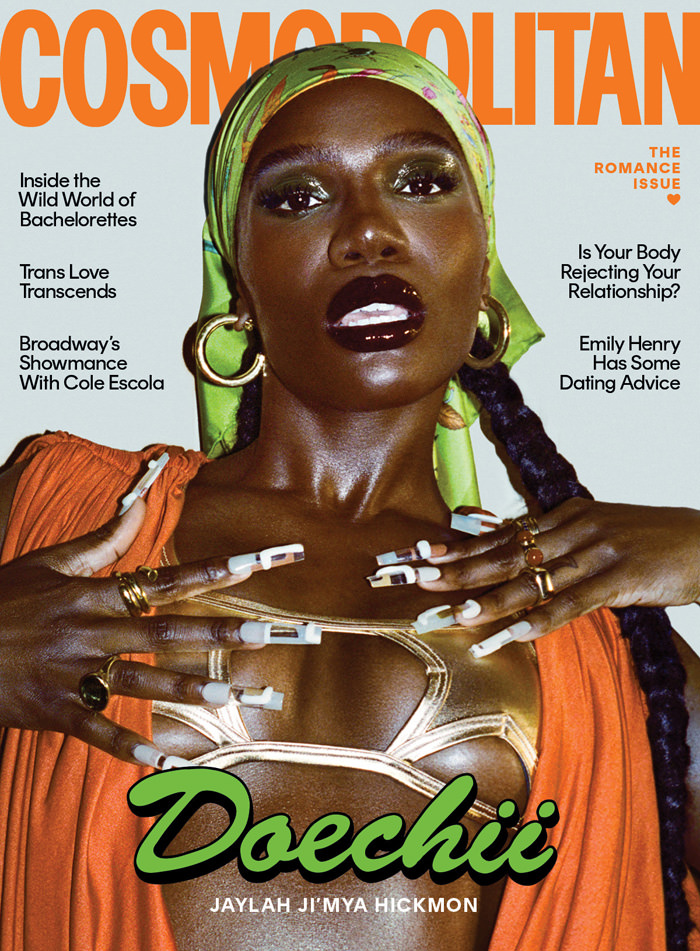
She is beauty, she is grace, she is the Swamp Princess. And she deserves it all.Doechii had been on the edge of mainstream success for years, but recently something shifted. From her historic Grammy win for ALLIGATOR BITES NEVER HEAL to cosigns from Lauryn Hill, Billie Eilish, Kendrick Lamar, and Lady Gaga, the past nine months have been a total whirlwind for the 26-year-old Tampa-born artist. She continues to redefine live performance and personal style. But she’ll tell you herself: This was always meant to be. In her cover interview for COSMOPOLITAN’s Romance Issue, Doechii opens up about queerness, the path to finding her artistic voice, the importance of being a student of hip-hop, what she has planned for the future, and so much more. Plus, in an episode of the COSMOPOLITAN video series THE BREAKDOWN, Doechii reflects on her journey to megastardom, including the lyrics to the first song she ever wrote, why she stands by her infamous “I got fired thank god” video, collaborating with Issa Rae, and embracing her inner theater kid with her iconic Grammys performance.
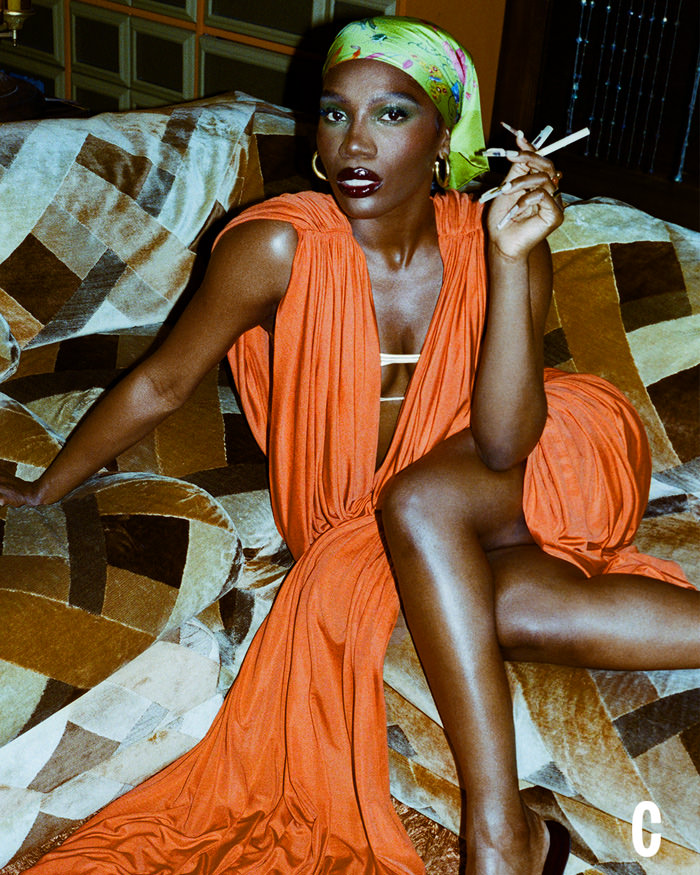
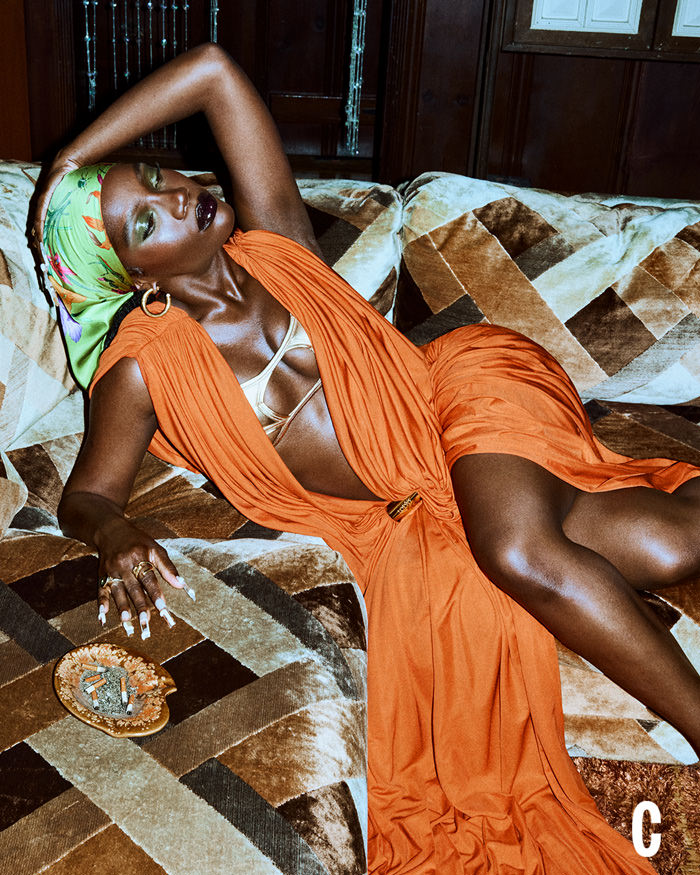
On why she hadn’t prepared a speech ahead of her Grammy win for Best Rap Album: “Something in my spirit told me, You’ll know what to say when you get up there. Just trust me. I think my speech was literally downloaded. It’s like my mouth was moving, but it wasn’t me speaking.”
On what Doechii would’ve done for her as a kid: “I was desperately seeking artists that looked like me and that thought like me. There weren’t many. I needed it so badly that I was like, ‘If I can’t find this, I’m going to become this.’”
On her mother: “She would always make me show up for myself even when I didn’t feel like it. Even when I lost interest in commitments, she still made me honor them. She also wouldn’t judge me when I wanted to try something else. She was very supportive of me pivoting, and now today, I can pivot. I owe that to her.”
On what experiences working in retail and restaurant jobs taught her about the type of boss she wanted to be: “The only thing I realized was that I didn’t like working for people. That’s it. I don’t like it. Because you’re the manager of Chipotle and I’m trying to lead a whole generation of people—I can’t take advice from you!”
On whether she would ever scrub her digital footprint: “No, I’m going to leave it. Like, some of the videos are super cringe, but I think it’s all important. I went through a period at 18 where, looking back now, I was running from doing music, but I was just trying to be creative in every other way that I possibly could. All along I knew it was music—I was just really scared. Some kid out there can watch those videos now to know, ‘When she was this age, she went through that, and it’s normal to feel that way.’ That vulnerability can be super validating.”
On how soon after a traumatizing romantic situation she can put pen to paper for song like “DENIAL IS A RIVER”: “Sometimes I have to process things before I can talk about them, because if I try to do it immediately, I’m gonna say the wrong thing. But that song took me a year to process. I didn’t want to give my ex any promo in my music. And I talked about three different exes in that song. People think it’s just one! I decided I had to talk about it for me.”
On being involved with a partner who’s creatively limited her and the album that inspired her to part ways: “I was 18, and I was dating a guy who just wasn’t very supportive of my music, and it really stifled me. I stopped writing because he was just like, ‘That’s not cool.’ I took his opinion way too seriously when really he just didn’t get it. I remember listening to SZA’s Ctrl for the first time and it literally gave me the courage to break up with him. I only bring that up because she inspired me to be vulnerable through my music in a way that I didn’t think I could be.”
On whether any people she’s written about ever reach out: “If I’m writing about you in the negative, you can’t reach out—you’re blocked.”
On how her relationships inspire her creatively: “All of my relationships inspire my music because they make up my life experience. This is such a Leo thing to say, but my literal existence as a queer Black woman is a major contribution to the hip-hop genre. I’m speaking truthfully from a queer Black woman’s perspective, and being honest about my life through my lens is amazing. That perspective is being highlighted, and we need queer perspectives.”
On being a student of hip-hop: “I still feel like a student, but I think people can learn from how I honor the genre’s traditions. If people are nerdy enough, they’ll observe a lot of double entendres, punch lines, clever wordplay, and poetic pictures on Alligator Bites Never Heal, especially on songs like ‘BOILED PEANUTS.’ We have to honor that as rappers—without that part of the genre, we literally would not have anything that we have now.”
On how she feels about being positioned as the “intellectual” alternative to other female rappers: “I wouldn’t agree with that perspective. I’ve seen people describe me as ‘the female that,’ ‘she’s intellectual,’ ‘she’s hard,’ and ‘she’s scarin’ hos.’ I think what’s happening is people are trying to understand who I am as an artist, but they’re doing it in comparison to other artists, which I don’t think is necessary to interpret art at all…Critiquing art and interpreting art is an art form as well. It’s a skill. People have jobs interpreting art, so it’s not something that is commonly practiced the right way. So I understand why people are doing it, but I don’t like to get too caught up in all of that, you know?”
On shifting people out of their comfort zones with some of the ways she presents herself—like by wearing visible face tape on red carpets: “With everything that I do in my life, I don’t have nobody in mind but me. I like to f*ck things up because to me, it looks cooler that way. I gravitated toward the face tape because it’s supposed to be hidden and it’s not. I’m that type of person. I like to turn my shirts inside out. I like to wear my pants backward. My love for imperfection shows up in my beauty and fashion a lot.”
On how her fashion has evolved over the years: “In my early 20s, I said the goal was to be a fashion icon. I just didn’t really have an idea of what I wanted to wear or who I was fashionably. We also couldn’t get pulls from big labels and designers. The style and the fashion have evolved as who I am as a woman has evolved. I just have a lot more clarity about what makes me feel comfortable and what represents me. I like to do a lot of research on these brands and their collections and see if the stories they’re telling align with mine. I can’t say what people are perceiving, but I can say the story that I’m telling through fashion is that ‘I’m everything.’ I’ve said that in my music, but now I want to say it through fashion.”
On how she’s grown from the 2022 version of herself who’d just been signed to a label: “I have learned to trust myself a lot more….I’m leading every step that I take, from the content to the marketing strategies to the way I show up in real life with my fans. These things are coming from my brain and my heart, and with my label, I delegate what I want them to do and they do what I tell them to do. That’s the difference—leadership and clarity and maturity.”
On how she relates to Beyoncé as an artist: “I relate to her efforts as a businesswoman and her leadership. She is the embodiment of an eloquent leader. I look up to the way that she handles her job, her fame, and her fans. She is the ultimate showgirl and professional artist.”
On being a role model: “It’s a position that I do not take lightly. I say this to myself often in my journal entries, but I truly am becoming who I needed. I can only imagine all the little Black girls and boys out there that I represent something for. So it excites me, it inspires me, and it makes me very aware of what it is that I’m saying and how I’m presenting myself while also being mindful of who I am right now and what grown Jaylah needs.”
On where she sees herself 20 years from now and what she hopes to maintain: “I hope I’m resting. I hope to be writing books or to have other creative facets that don’t generate money—doing things just to do them, not as a job. Hopefully, I’m wealthy enough to never have to work again. And I hope I maintain how I express myself. I never want to tense up or think, Because I’m this old, I can’t do this. No matter how old I get, I’m still twerking on the floor. I want to maintain that everybody else’s perceptions of what Jaylah can do or should do never affect what Jaylah wants to do.”
[Photo Credit: Eric Johnson for Cosmopolitan Magazine]
DOCTOR WHO: Lux Next Post:
THE LAST OF US: Through the Valley
Please review our Community Guidelines before posting a comment. Thank you!

